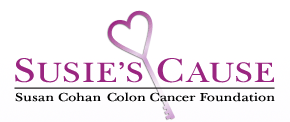Colon Cleansing and CAM
Cleaning colons is apparently the rage of the 21st century. Celebrities, friends and TV talk show hosts are all discussing it, but is it a healthy thing to do? Are there truly pounds of waste backed up in that colon that has accumulated over the past 20 years? The answer to the first question is maybe, the answer to the second question is an emphatic NO! The theories behind a build-up of waste were debunked in the early 1900s. The concept was called auto-intoxication, the idea that poisons in the stool built up over time and caused disease.
This theory was disproved more than a century ago. Yet it seems so logical that people say it must be true. When one truly understands how miraculous the human body is you realize that these theories make no sense. The body is designed to not waste anything - in fact our waste - the stool, contains the nutritional components that keep the colon healthy! Bacteria in our colon help our body modify the waste so it is usable for the cells in the colon lining, known as the mucosa. Repeated cleansing actually traumatizes the colon lining and may lead to problems such as colon ulcers, bleeding and perforation.
So why the obsession? It is true that most of Western Societies have an element of constipation, but this is mostly do to a lack of fiber intake. If we all took in the recommended dose of dietary fiber, and drank enough water, we would eliminate constipation, diverticular disease and symptomatic hemorrhoids. So if colon cleansing means taking high-dose fiber products, I have no problems with it. For a full review on colon cleansing feel free to go to http://www.betterbowel.com/articles/the-truth-about-colon-cleansing - an article I wrote a year ago.
Much of the publicity for colon cleansing comes from sources in alternative medicine. We have learned over the years that there is much value in understanding herbal remedies, and many of them work. Witch hazel is used for hemorrhoids, and is also the active ingredient in Preparation H (sorry - I can talk about this stuff for days). So how do you figure out what is reliable and what is pure fiction? You need to find resources for complementary alternative medicine.
So what is complementary alternative medicine, affectionately called CAM? Nobody seems to know. On the one hand, the Institute of Medicine defines it as follows: "Complementary and Alternative Medicine (CAM) is a broad domain of resources that encompasses health systems, modalities, and practices and their accompanying theories and beliefs, other than those intrinsic to the dominant health system of a particular society or culture in a given historical period. CAM includes such resources perceived by their users as associated with positive health outcomes. Boundaries within CAM and between the CAM domain and the domain of the dominant system are not always sharp or fixed."
I am not sure that helps - I did not understand that definition at all. The bottom line is CAM is what you make of it. It varies between people, religions, cities and countries. In some countries, CAM programs are run by medical physicians. In the United States, CAM has traditionally been independent of Medical Doctors. Many Naturopathic Physicians obtain degrees for Alternative Medicine via web based programs. The question is simply how one can decide if their CAM practitioner is well trained and understands the complementary nature of traditional medicine and alternative therapies.
Modern medicine has needed to embrace and understand the nature of alternative therapies and for most of the 20th century has failed to do so. Recently, academic medical centers have begun incorporating alternative therapies into their healthcare delivery systems.
My simple advice is to only use those CAM Centers affiliated with Medical Schools and Hospitals, such as the University of Maryland’s Center. This may help weed out alternative therapies that really have no basis in science or medicine, such as colon cleansing enemas. Did I mention colon cleansing enemas are a load of..........waste?



